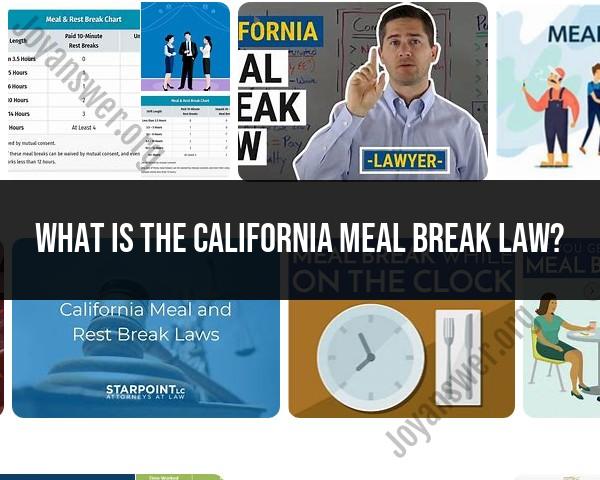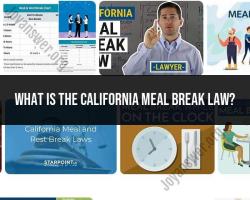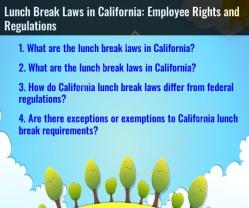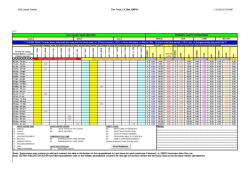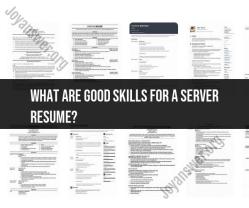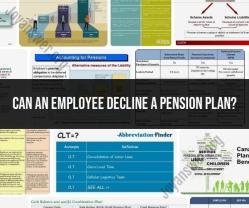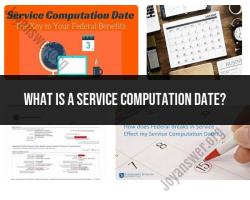What is the California meal break law?
The California meal break law, also known as the meal period requirement, establishes regulations regarding meal breaks for employees in the state of California. The law is outlined in the California Labor Code, specifically in sections 512 and 226.7, as well as in various Industrial Welfare Commission Wage Orders.
Key provisions of the California meal break law include:
Meal Period Timing: Under California law, non-exempt employees who work shifts of more than five hours are entitled to an unpaid meal break of at least 30 minutes. This meal break must be provided no later than the end of the employee's fifth hour of work.
Meal Break Duration: The meal break must be at least 30 minutes in duration. However, if the total work period is no more than six hours, the meal break may be waived by mutual consent of the employer and employee.
Meal Break Waiver: Employees who work shifts of more than 10 hours are entitled to a second meal break of at least 30 minutes. Like the first meal break, the second meal break must be provided no later than the end of the employee's tenth hour of work, unless the total work period is no more than 12 hours and the second meal break is waived by mutual consent.
On-Duty Meal Periods: In certain circumstances, an employee may be permitted to take an on-duty meal break, where they continue to perform job duties while eating. However, on-duty meal periods are only allowed if the nature of the work prevents the employee from being relieved of all duty and if both the employer and employee mutually agree to an on-duty meal period in writing.
Premium Pay for Missed Meal Breaks: If an employer fails to provide a required meal break or provides an insufficient meal break, the employer must pay the employee one additional hour of pay at the employee's regular rate of compensation for each workday that the meal break is not provided.
Record-Keeping Requirements: Employers are required to maintain accurate records of employees' meal breaks and ensure compliance with meal period regulations.
It's essential for both employers and employees in California to understand and comply with the meal break law to avoid potential legal liabilities. Failure to provide required meal breaks or payment for missed breaks can result in penalties, fines, and legal action. Employers should consult with legal counsel or review official state resources for detailed guidance on complying with California's meal break law.
The California meal break law outlines specific requirements employers must follow regarding rest and meal breaks for their non-exempt employees. Here's a breakdown:
1. California Meal Break Law Summary:
- Meal Breaks: Non-exempt employees working more than 5 hours in a workday must receive an uninterrupted, unpaid meal break of at least 30 minutes. This break should generally begin before the end of the 5th hour of work.
- Second Meal Break: Employees working more than 10 hours in a workday are entitled to a second 30-minute meal break.
- Rest Breaks: Employees working at least 3.5 hours in a workday are entitled to one 10-minute paid rest break. Employees working more than 6 hours are entitled to two 10-minute paid rest breaks. These breaks should be in addition to meal breaks and cannot be counted towards the meal break duration.
2. Employer Requirements:
- Employers must ensure employees receive their designated breaks without interference.
- Employers cannot require employees to work during their breaks.
- Employers cannot deduct break time from employees' wages.
- Employers must provide adequate facilities and time for employees to use the restroom.
- Employers must post a copy of the meal and rest break law in a conspicuous location at the workplace.
3. Consequences of Violation:
Violating the California meal break law can lead to various consequences for employers:
- Civil penalties: The Labor Commissioner can issue civil penalties of up to $300 per violation per employee.
- Employee lawsuits: Employees can sue their employers for missed meal or rest breaks.
- Wage and hour violations: Failure to pay for rest breaks can constitute wage and hour violations, leading to additional penalties and back pay.
Additional Resources:
- California Division of Labor Standards Enforcement: https://www.dir.ca.gov/dlse/
- California Labor Code: https://leginfo.legislature.ca.gov/
- California Chamber of Commerce Meal and Rest Break Law Guide: https://hrcalifornia.calchamber.com/hr-library/pay-scheduling/meal-rest-break/meal-break
Remember, this is a general overview, and specific details and exceptions might apply depending on your situation. It's always best to consult with a legal professional for specific guidance related to your situation.
